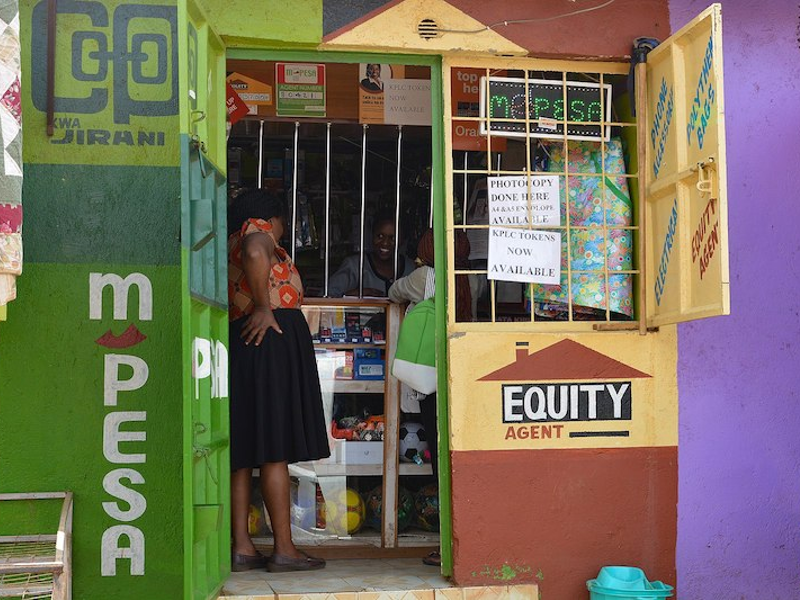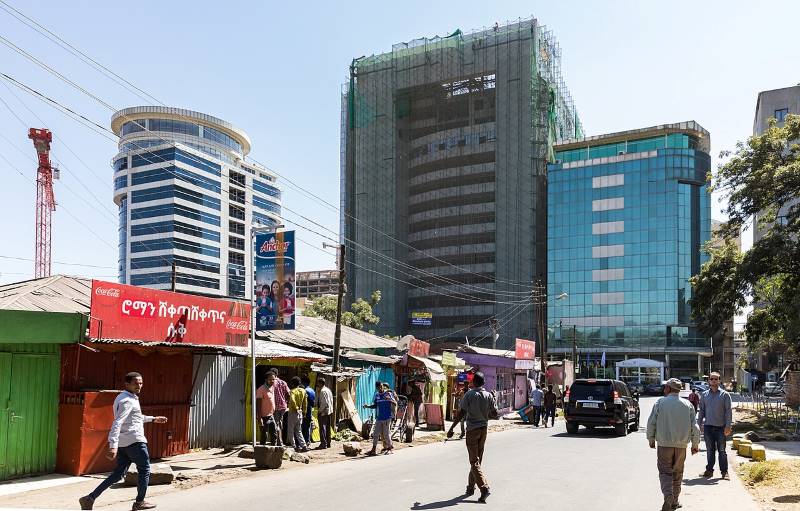M-Pesa Kiosk in Kenya. Source: Wikimedia Commons
Technology has had a remarkable impact in Africa, especially in the economic sector. The introduction of various mobile money platforms (Fintech) has revolutionized the ease of conducting financial transactions across Africa. These mobile money platforms have gone a long way to reach those with limited access to banking services in rural Africa.
One of the popular mobile money platforms is M-Pesa, a mobile money transfers service payments and micro-financing platform that was founded in Kenya in 2007 by Safaricom (One of the largest phone operators in Kenya).
The goal of M-Pesa was to provide financial services to Kenyans enabling them to hold and transfer cash through the use of their mobile phones. By converting cash into digital currency, these funds can be sent to other M-Pesa subscribers via their mobile phones or withdrawn as physical cash at designated points.
Today, M-Pesa has not only provided financial ease for the people of Kenya but also provides similar services for other African countries like Tanzania, South Africa, Afghanistan, Lesotho, DRC, Ghana, Mozambique, Egypt, and Ethiopia.

M-Pesa transaction on Nokia 1100 phone. Source: Wikimedia Commons
In September 2023, in an Interview with Tim Masela, the Vice Chair, AACB African Inter-Regional Payments Integration Task Force, titled “Digital Financial Inclusion in Africa Interview Series”, he noted that “According to the Global Findex Database, account ownership in Sub-Saharan Africa (SSA) rose from 43 percent in 2017 to 55 percent in 2021”.
Mobile money payment platforms such as the likes of M-Pesa have contributed to the rise in digital financial inclusion across the African continent. One critical area this can be seen is in its impact on the development of the informal sector.
According to the International Labour Organization, “Nearly 83% of employment in Africa and 85% in Sub-Saharan Africa is informal,” this ultimately means that in Africa, a large contributor to employment and economic activities is mostly at the Micro Small Medium Enterprises level.
This is where Fintech platforms like M-Pesa have leveraged by providing access to financial services without the necessary stringent requirements of traditional banks. With only a mobile phone, a registered sim card, and a government-issued identity card, applicants can register with M-Pesa to receive and make payments, enabling them to grow and contribute to the economy.
Another way M-Pesa is transforming African lives is through financial convenience. As a result of Africa largely being populated by rural areas, most remote areas are without access to banking services.
Any financial activity requires individuals to travel long distances to urban areas to make use of banking halls or automated teller machines. With M-Pesa, various forms of money transfer payments can be done via mobile phones or designated agents close to these localities.
Cross-border payment solution is another way M-Pesa is impacting the financial sector in Africa. Through M-Pesa Global, individuals or businesses can carry out international money transfers to recipients across the globe on their mobile accounts. Also, the elimination of the need to handle large volumes of cash transactions has created a safe and secure environment for businesses that the risk of theft has plagued.
M-Pesa has committed itself to ensuring inclusion, and stimulating economic growth while ensuring a more secure and convenient way of carrying out financial services. Additionally, with the introduction and growth of the 5G network, and the accessibility of smartphones, the future of mobile money in Africa looks promising.

Okechukwu Nzeribe works with the Onitsha Chamber of Commerce, in Anambra State, Nigeria, and loves unveiling the richness of African cultures. nextquestservices@gmail.com





